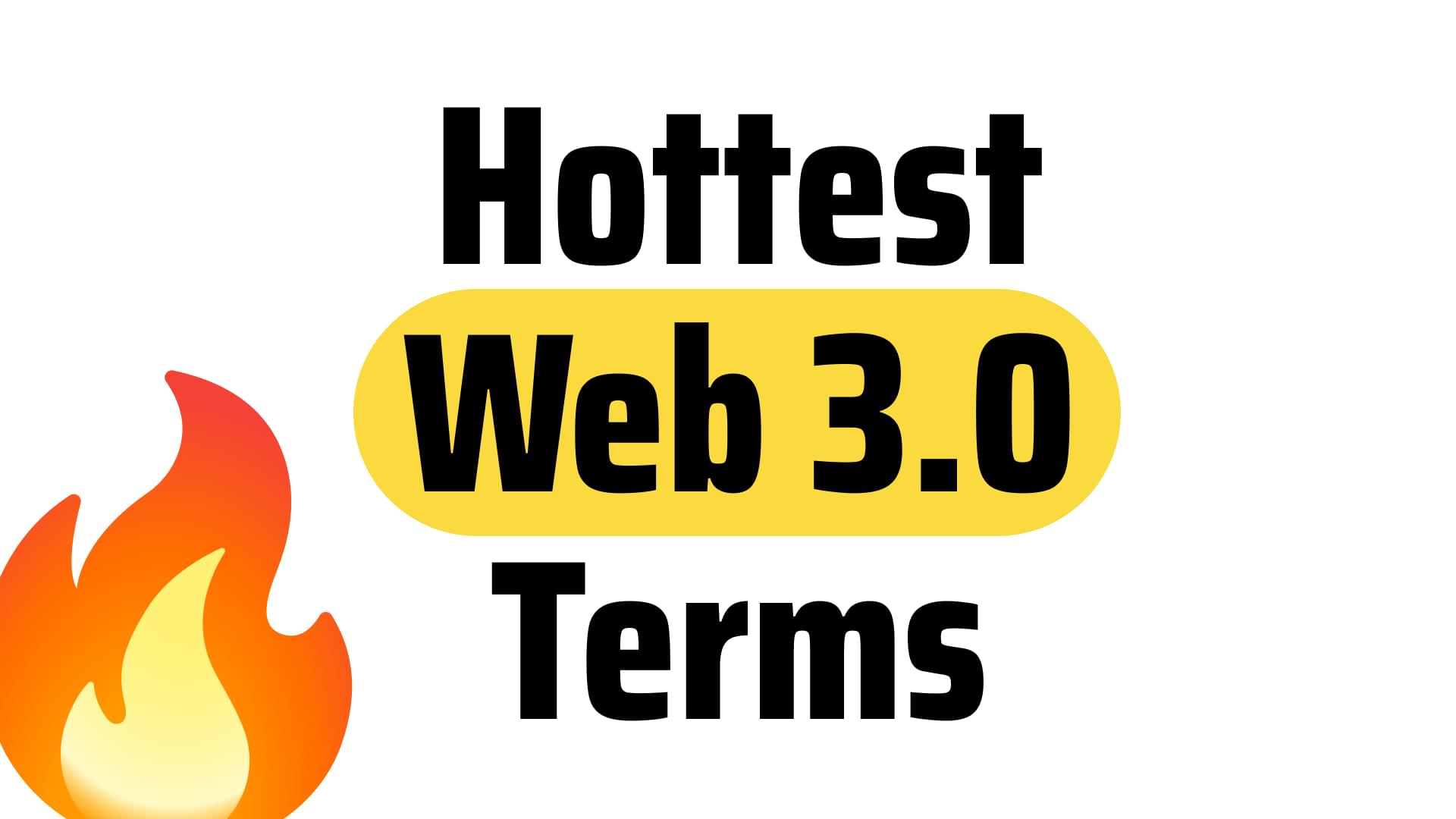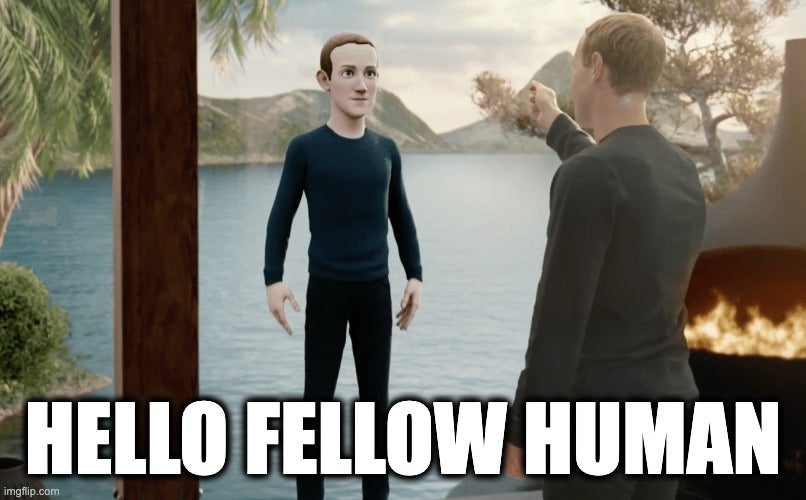🔥The Last Web 3.0 Terms You’ll Ever Need
Updated: February 16, 2022•4 min read

Attention! This may inspire you to create a million dollar idea. 😜
Hey crypto punks, Web 3.0 is becoming a hot topic again after hyping around Metaverse. A new architecture of the internet is opening new opportunities, and knowing them, will give you the advantage to pick up some technologies upfront or even inspire you on your own project. The opportunities are limitless and reshape all the industries.

Glossary
Metaverse —is a network of 3D virtual worlds where people avatars can interact with digital objects and with other people.
Blockchain — decentralized ledger, that stores data across a network of computers (called nodes). The data is split into blocks that are linked using cryptography. When new data is pushed into the blockchain, it fills an empty block that is further linked to other blocks, creating a chronological order chain. The data in the blockchain is not revertable, it is stored forever, and anyone can view it.
Cryptocurrency (“crypto”) — a decentralized digital currency, created using cryptographic techniques. Crypto is decentralized, which means, it is independent of a monetary authority like banks and government. Everyone can issue the cryptocurrency (mine), buy, sell or trade without limits and control. Transactions are secure and much faster than traditional currency.
Crypto Wallet — software or device for storing cryptocurrency and making crypto transactions.
Metamask — popular browser extension and mobile app. It acts as a crypto wallet and gateway to blockchain apps.
Miner (cryptocurrency) — nodes in the blockchain. Each of the miners is guessing a 64-digit hexadecimal number, a token, that is generated during the transaction (inserting a new record into the blockchain). At the same time, miners are verifying the transactions: checking the source, checking a double-spending of the money, checking if transaction volume is within the allowed range. Miners are rewarded with crypto for verifying the block of transactions that were added to the blockchain.
Gas Fee — the amount of cryptocurrency that users pay miners in order to include their transactions into the blockchain.
Token — is usually a random string or a number. In cryptocurrency, it can have different meanings:
- token — any cryptocurrency, but not Bitcoin and Ethereum (they usually called coins, but technically, they are tokens too);
- token — a cryptocurrency that uses other cryptocurrency’s infrastructure (blockchain). The token can become a coin if it has its own blockchain;
- token — can be a representation of digital asset (NFT);
NFT — or Nonfungible token — is a unique token stored in a blockchain that represents digital assets, like music, image, art, 3d models. Nonfungible means unique and non-interchangeable.
Smart contract — a decentralized program that is stored in blockchain, and called when participants satisfy preconditions. It is similar to a vendor machine. It executes when the buyer inserted the card to pay. It allows you to choose the drink, and after a drink is released, transfers money to the seller. Automated, safe, and fast. A smart contract could be any service: money transfer, voting during elections, changing property owner, basically, anything that requires human in between.
ICO — Initial Coin Offering, similar to IPO (Initial Public Offering) — is an organization that allows you to raise the funds for products and services based on cryptocurrency.
DApp — Decentralized application — are software applications that run inside a blockchain network. DApps run on a decentralized environment, is public and open-source, doesn’t have a single authority.
DeFi — decentralized finance service resided in blockchain, which substitutes all the services that banks can provide.
DAO — Decentralized Autonomous Organization — is an open-source platform running on a blockchain network that allows users, collectively manage the code. The rules are built in the code and enforced through smart contracts. In order to vote for proposals, users have to own and lock cryptocurrency into a voting contract. The voting weight is proportional to the amount of cryptocurrency locked. The proposal is finalized after achieving the network consensus rule and voters are rewarded with cryptocurrency.
Consensus — a set of rules in a blockchain system that has to be verified in order to achieve the agreement on a single data value or a single state of the network.
Ethereum — an open-source software platform that works in the public blockchain networks and focuses on running DApps applications. It also has its own cryptocurrency for making payments inside the network, called Ether.
EVM — Ethereum Virtual Machine — runtime environment for executing smart contracts in Ethereum blockchain. Allows a secure way of running programs that spread between machines around the world.
Solidity — a programming language for writing smart contracts in blockchain, such as Ethereum. The program has to be compiled in Ethereum Virtual Machine.
Solana — a blockchain that solves the major problems of scalability, transaction speed, and price, energy efficiency. It is open-source that encourages to develop the DApps.
Don’t forget to clap 👏 in the comment section below if you learned something new
